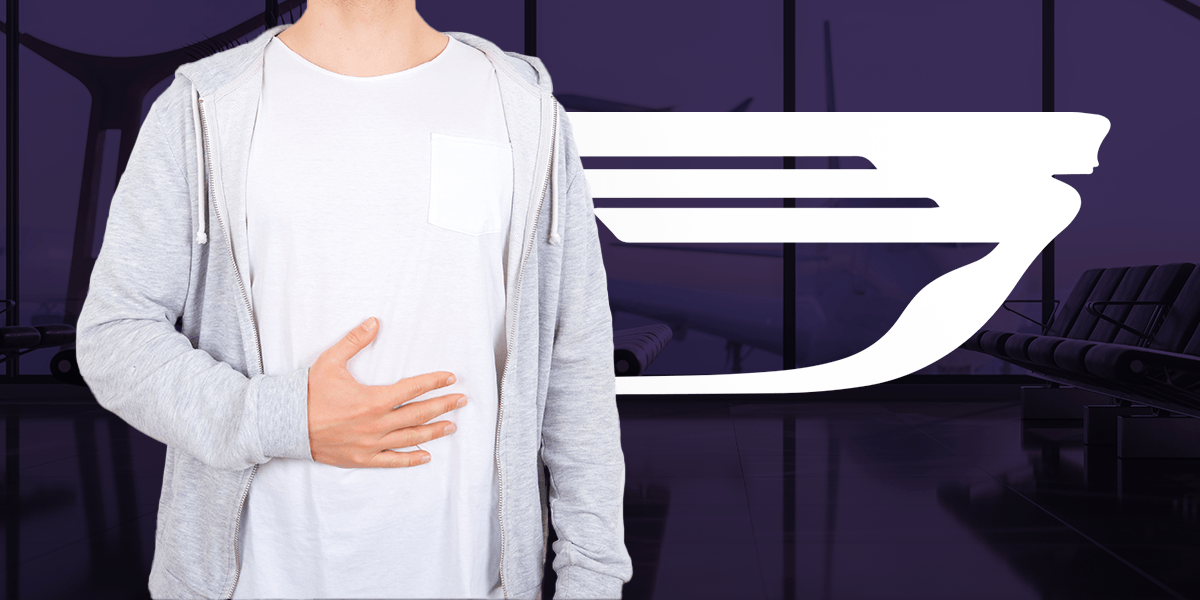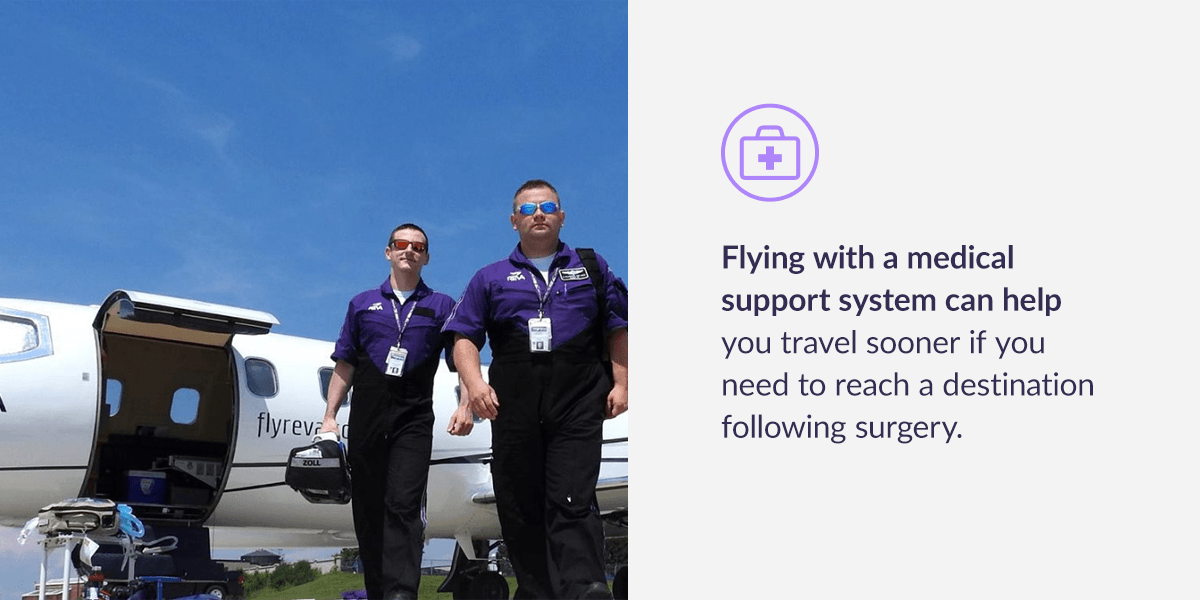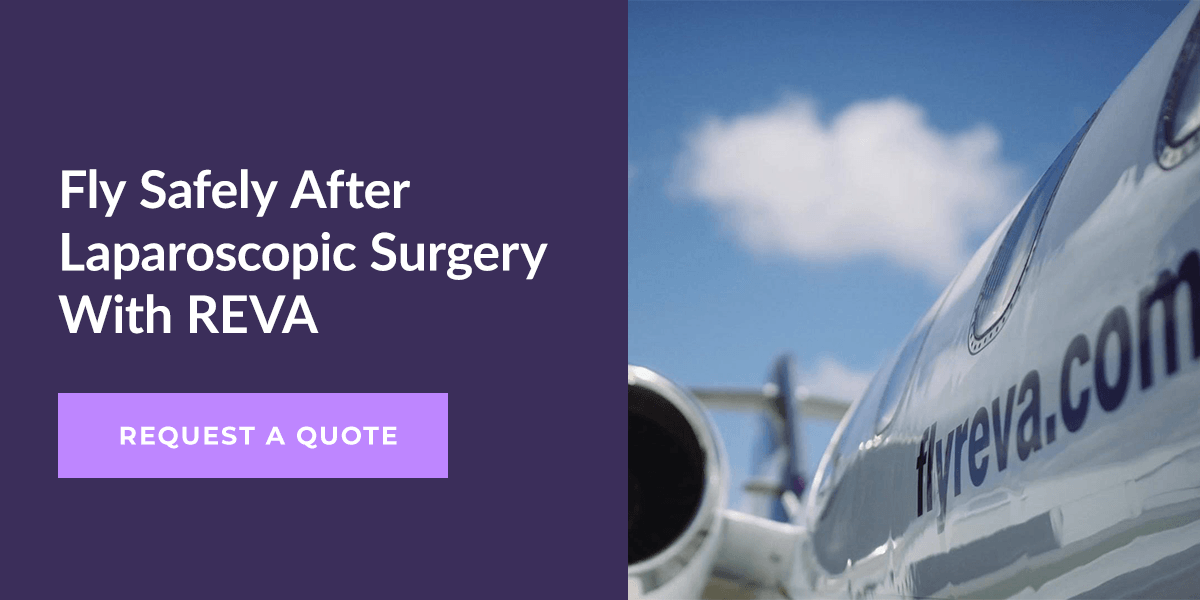Blog
STAYING ON THE FOREFRONT OF MEDICAL AIR TRANSPORTIs Flying After Laparoscopic Surgery Safe?
Flying after laparoscopic surgery presents potential health risks, but it is possible to fly following this type of surgery. If you recently underwent a laparoscopic procedure and need to travel, flying with a medical escort or on a private air ambulance can help you reach your destination safely.
The Basics of Air Travel After Laparoscopic Surgery
Laparoscopic surgery is a minimally invasive procedure doctors use to detect, diagnose or treat conditions affecting the urinary tract, digestive or female reproductive systems. Medical providers also use it to perform biopsies or remove damaged organs. While a laparoscopy involves small incisions and quicker recovery times than other types of surgery, it still comes with some potential side effects and safety considerations.
Airline travel affects the body due to long periods of immobilization and dry, recirculated cabin air that is lower in pressure than the air pressure at sea level. Sitting for an extended time in a low-pressure environment can cause the body’s fluids to move toward the lower extremities and alter blood viscosity. These temporary air travel complications may present more significant risks when flying after a surgical procedure.
Potential Risks Associated With Laparoscopic Surgery
To fully understand the risks of flying after laparoscopic surgery, you must also familiarize yourself with the possible complications of this type of procedure. While laparoscopic surgery is safe for most individuals, it can cause the following complications in some cases:
- Pain and swelling at the incision site: Mild pain and swelling can occur at the injection site following laparoscopic surgery. Your doctor may prescribe pain medication after your procedure to reduce these side effects.
- General anesthesia side effects: General anesthesia is typically safe for healthy individuals, but it affects each person differently. Some patients experience complications such as temporary mental confusion, allergic reactions, or nausea and vomiting. Serious complications such as a heart attack or stroke are also possible.
- Infection: Port site infections can occur if bacteria enter the incision site. For this reason, preoperative, intraoperative and postoperative measures to prevent infection are essential. You must follow your doctor’s instructions for keeping your incision site clean and dry, which may include gently cleaning and drying the site and changing bandages periodically.
- Trocar injuries: Trocar injuries occur when the surgical instrument used in laparoscopic surgeries penetrates an internal organ or blood vessel. This type of complication can be fatal, but it’s rare.
- Insufflation complications: Insufflation is a process in which medical professionals use gas to increase visualization and operative space during laparoscopic procedures. In some cases, gas bubbles from this process can enter veins or arteries and cause various complications.
- Blood clots: Surgery can increase the risk of blood clots because foreign matter such as fat, collagen and tissue debris can enter the bloodstream during a procedure.
Potential Complications When Flying After Laparoscopic Surgery
When it comes to surgery and air travel, risk factors are essential considerations. When you understand potential risks, you can take steps to protect your health and fly safely. The following complications are possible when flying after laparoscopic surgery:
Deep Vein Thrombosis (DVT)
Deep vein thrombosis (DVT) manifests when a blood clot develops in one of the legs’ deep veins. Flying after laparoscopic surgery increases the risk of DVT because it involves sitting for extended periods, and your risk increases the longer you remain immobile.
Pulmonary Embolism
DVT usually dissolves without medical intervention, but it can become serious if part of it breaks off and moves to the lungs. This type of blockage is known as a pulmonary embolism, and it can cause complications such as the following:
- Low blood oxygen levels
- Lung damage
- Damage to vital organs due to oxygen deprivation
Aggravated Insufflation Complications
Flying can aggravate insufflation complications because oxygen levels are lower in an aircraft. Trapped gases in the body can expand due to cabin pressure differences, increasing the chances of the following insufflation complications:
- Pneumothorax: A pneumothorax occurs when air enters the space between a lung and the chest wall, causing a collapsed lung. When a pneumothorax occurs, further intervention is necessary to prevent further complications such as respiratory failure, hemorrhage, fluid collection in the lungs, unsteady blood pressure, arrhythmias and organ failure. Proper intervention also helps prevent air from getting trapped between a lung and the space around the heart.
- Hypercapnia: Hypercapnia is a complication caused by excess carbon dioxide in the blood. It can cause dizziness, fatigue, headaches, irregular heartbeat, difficulty breathing, respiratory failure, or seizures.
- Hypothermia: Laparoscopic procedures can increase the risk of hypothermia because providers may use dry and cold carbon dioxide during the insufflation process. An aircraft’s continuously running ventilation system exposes you to more cold air than usual, which can further increase the likelihood of hypothermia. Hypothermia requires medical attention to prevent cardiovascular or respiratory failure.
- Subcutaneous emphysema: Subcutaneous emphysema occurs when air enters tissue beneath the skin. This can lead to complications such as collapsed lung, low blood circulation to the brain, compartment syndrome, trachea compression and complications regarding the heart or airways.
How Long After Surgery Should You Wait to Fly?
The length of time you should wait to fly after surgery depends on the type of surgery you receive, any complications you experience and your doctor’s recommendations. Flying with a medical support system can help you travel sooner if you need to reach a destination following surgery.
How to Fly Safely After Laparoscopic Surgery
Flying after laparoscopic surgery is possible if you take the following precautions:
Follow Your Doctor’s Postoperative Instructions
Your outcomes and postoperative care instructions depend on several factors, such as your overall health, the type of laparoscopic surgery you undergo and whether any complications occur during or after your procedure. Consulting with your medical provider before a flight is crucial because they know the risks you are more likely to encounter.
Your doctor may recommend moving during your flight, limiting your flight duration or taking special medication. In some cases, your doctor may recommend avoiding or delaying a flight due to your overall health and personal risk factors.
Fly With Medical Support
Flying with medical support is highly recommended if you plan to travel soon after undergoing laparoscopic surgery. A medical professional or medical support team can provide you with comfort and peace of mind during your travel, ensuring you have monitoring and care to address complications if they arise.
- Commercial medical escort: A commercial medical escort accompanies an individual on a commercial airline, providing in-flight care. If you fly with a medical escort, they monitor your condition throughout your flight, provide care as necessary and help you maintain comfort until you reach your destination. Depending on your specific needs and the airline’s accommodations, you may sit in a regular airplane seat or relax on a stretcher while your medical escort cares for you.
- Private medical flight: In some cases, a private medical transport flight is the best option. An air ambulance can transport you to your destination in an emergency or non-emergency situation, providing safe, fast transport and personalized care.
Wear Compression Stockings
Compression stockings help increase blood flow from your legs and feet, supporting adequate circulation. Wearing compression stockings on a flight can help you prevent blood clots and fluid retention.
Why Trust REVA for Safe Medical Escort Services
At REVA, we aim to put your safety and comfort first, providing you with expert medical escort services and private air ambulance flights to help you fly home or reach your next destination after surgery. Our medical escort team has the training and experience to monitor your condition, determine the best in-flight treatment options and provide care if complications arise. With over 30 years in the industry, REVA is the company you can rely on for complete comfort and care during air travel.
Fly Safely After Laparoscopic Surgery With REVA
Do you need to schedule a flight after laparoscopic surgery? REVA is ready to help. Contact us to request a quote or learn more about our medical escort and air ambulance services.



